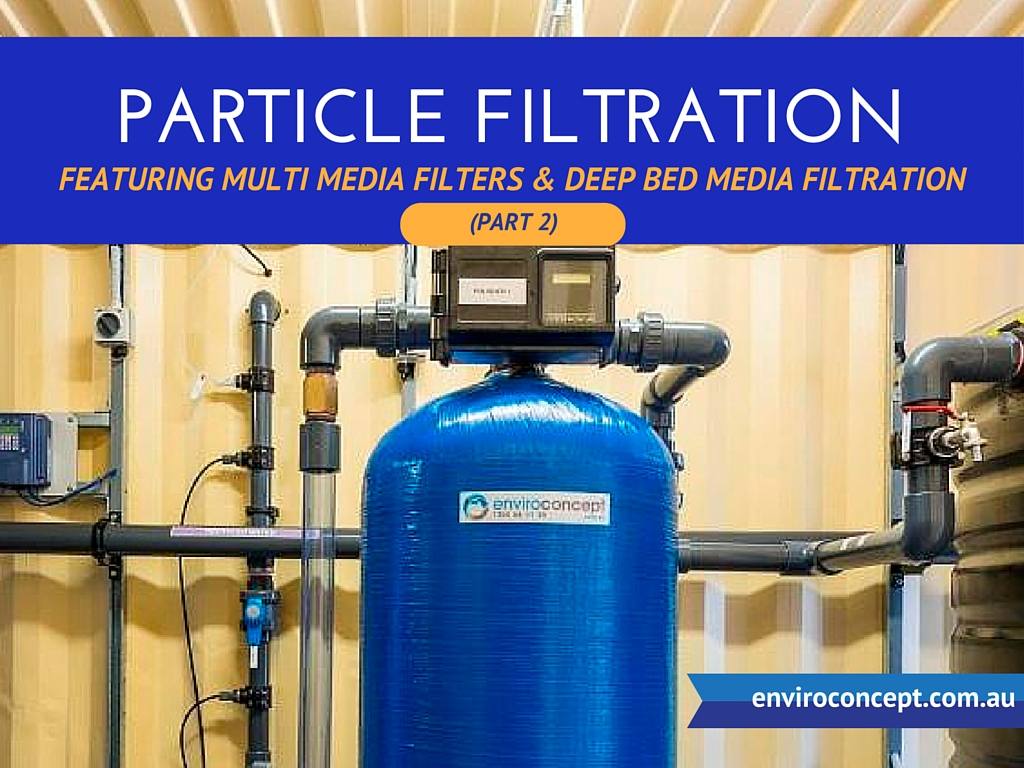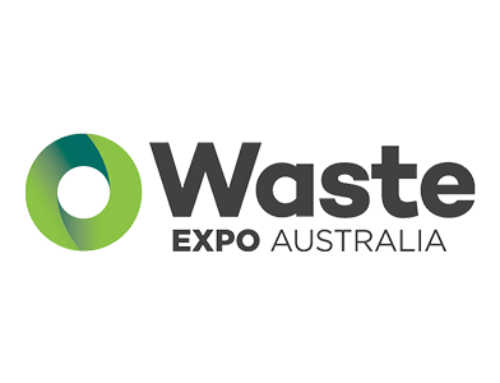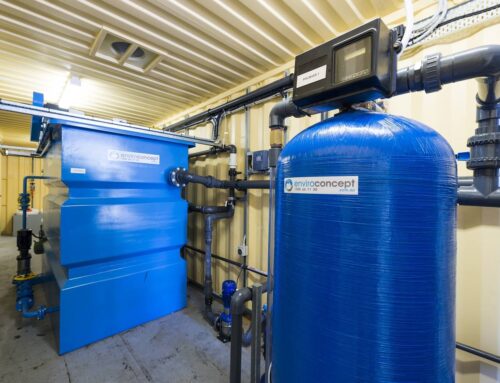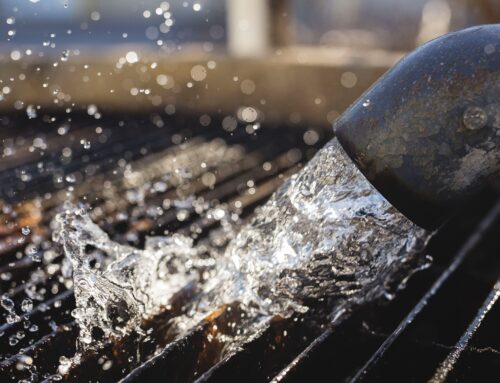Water filtration systems can differ based on incoming effluent and the purity required of the output water. Two types of water treatment systems which are common in effective water processing and treatment for industries are particle filtration and membrane filtration. In this second part of the filtration series, we will look at a few processes and products used in particle filtration including Multi Media Filtration and Deep Bed Media Filtration.
Particle Filtration
Particle filtration is a process that separates solids from liquids. The water quality is described in terms of total suspended solids (TSS) in units of milligrams per liter (mg/l) or parts per metre (ppm). The properties of solids in water, particularly the size, shape, density, stickiness and the quantity of solid particles determine which filter technologies need to be used.
Particle Filtration is defined generally as the filtration of particles larger than 1 micron (check the chart below). This type of filtration is often used as the first step in industrial wastewater treatment. Common process as used in particle filtration are bag filters, cartridge filters, multimedia filters and self-cleaning filters, with sand, glass or other specialised media.
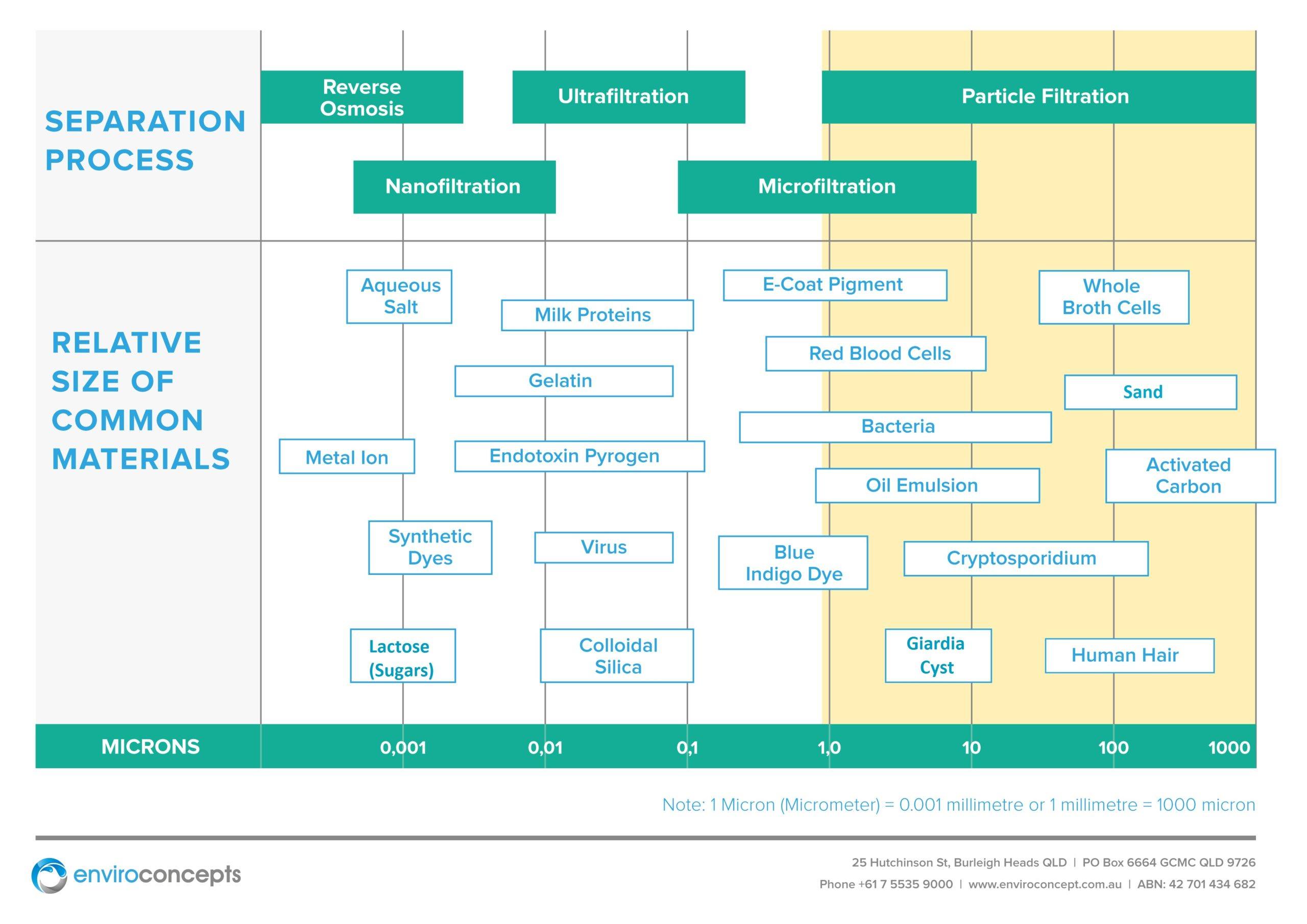
Multi Media Filters
A Multi-Media Filter is used to reduce the level of suspended solids (turbidity) in incoming feed water. Turbidity is the degree to which water loses its transparency due to the presence of suspended solid particles. The measurement of turbidity is a key test of water quality.
Suspended solids can comprise of sand, grit, clay, organic matter, algae and other microorganisms. Incoming feed water that is high in suspended solids can reduce the effectiveness of downstream filtration equipment such as reverse osmosis membranes.
Enviro Concepts offers Multimedia Filtration plants that are suitable for treatment of surface water, storm water, waste water and tertiary treated effluent. Our Multimedia Filtration systems can handle water with a range of variables such as <15 NTU of turbidity and <100mg/L of suspended solids.
Deep Bed Media Filter
Enviro Concepts Deep Bed Media Filters are often setup as the final stage of our filtration before recycled water is returned to a wash bay. The Deep Bed Media Filter is able to reduce the particles in the water down to a nominal 3 microns and will process water at any required flow rate from 5 L/min to 500 L/min.
Enviro Concepts Deep Bed Media Filtration processes are also common as pre-treatment to UF and RO. The filtration process has also been used in industrial and municipal water treatment in combination with operations such as activated sludge, chemical coagulation, oxidation reduction and ion exchange. The structure of the filter for industrial wastewater treatment is virtually the same as that used for potable water treatment.
Industrial applications of the Deep Bed Media Filter include wastewater polishing for industrial wash water recycling. It is also used for recycling units in car washes or car detailing businesses where flawless water and higher level of water clarification is required for spotless finish.
Our next two articles in the series are Ultrafiltration and Reverse Osmosis. If you want to access the Part 1 of this series, click here.
If you have any filtration questions on particle filtration processes, feel free to contact us. To access Deep Bed Media Filter specification sheet, download here.

